The Changing Man: Through the years with Bradley Wiggins
My six very different team experiences
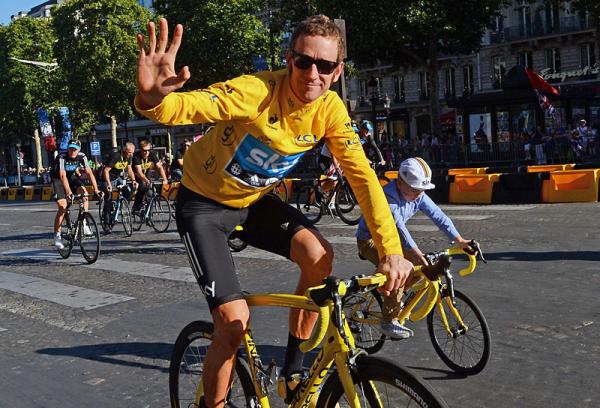
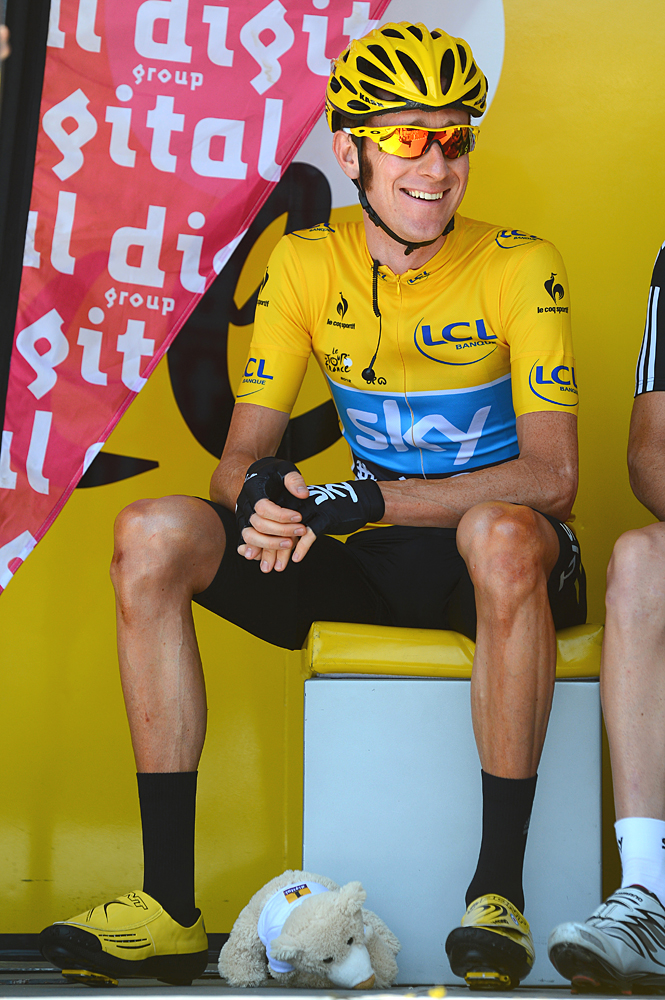
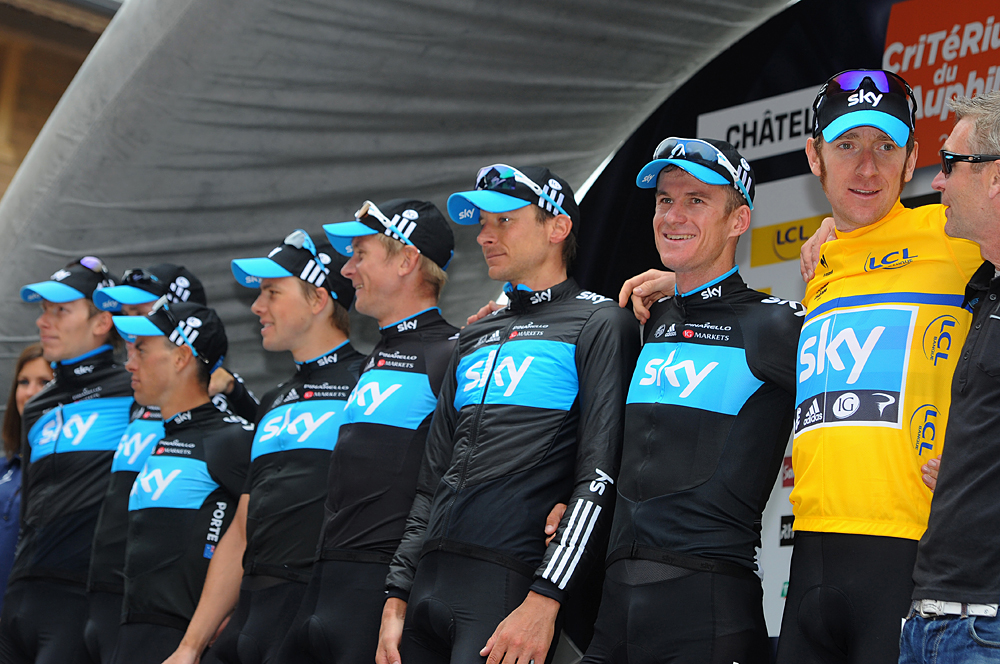
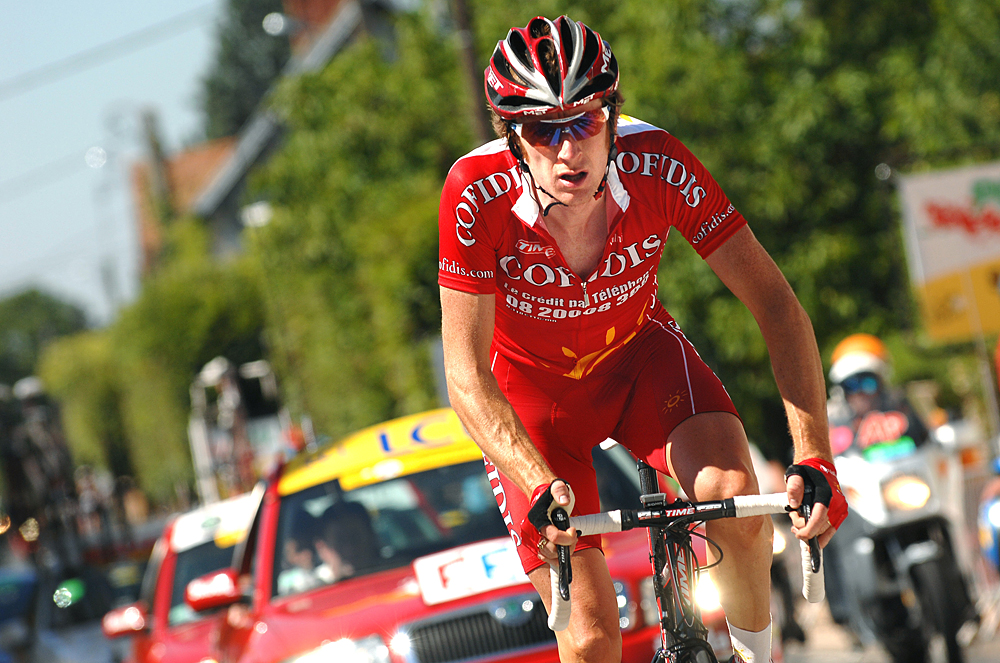
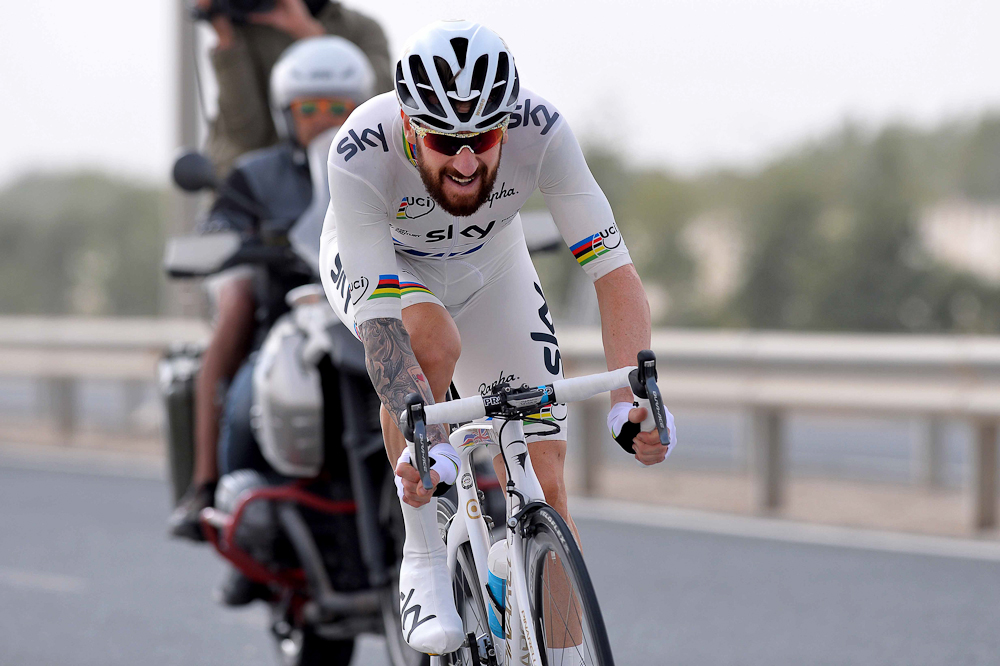
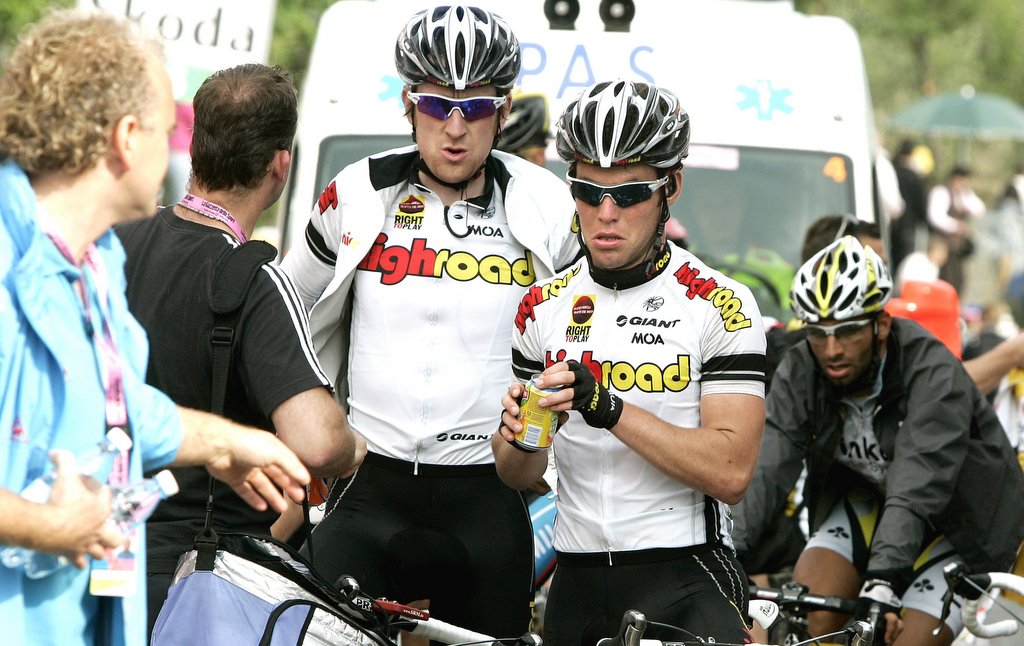
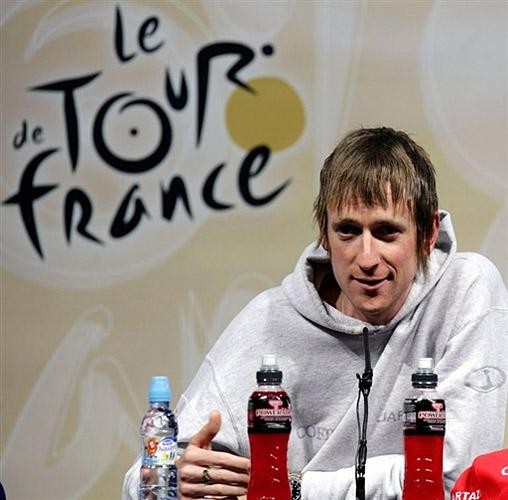
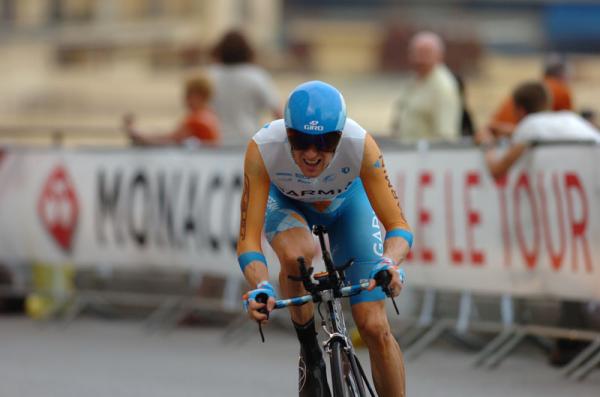
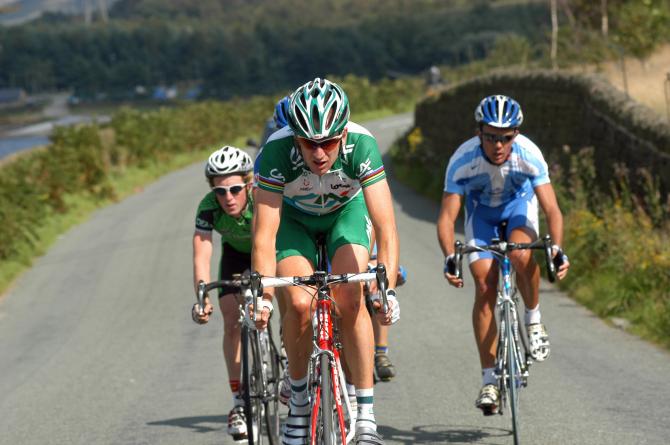
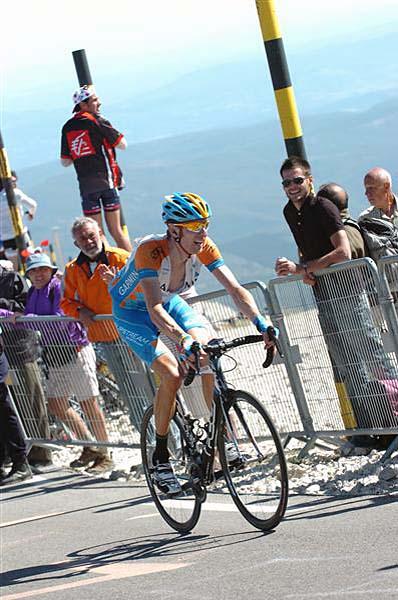
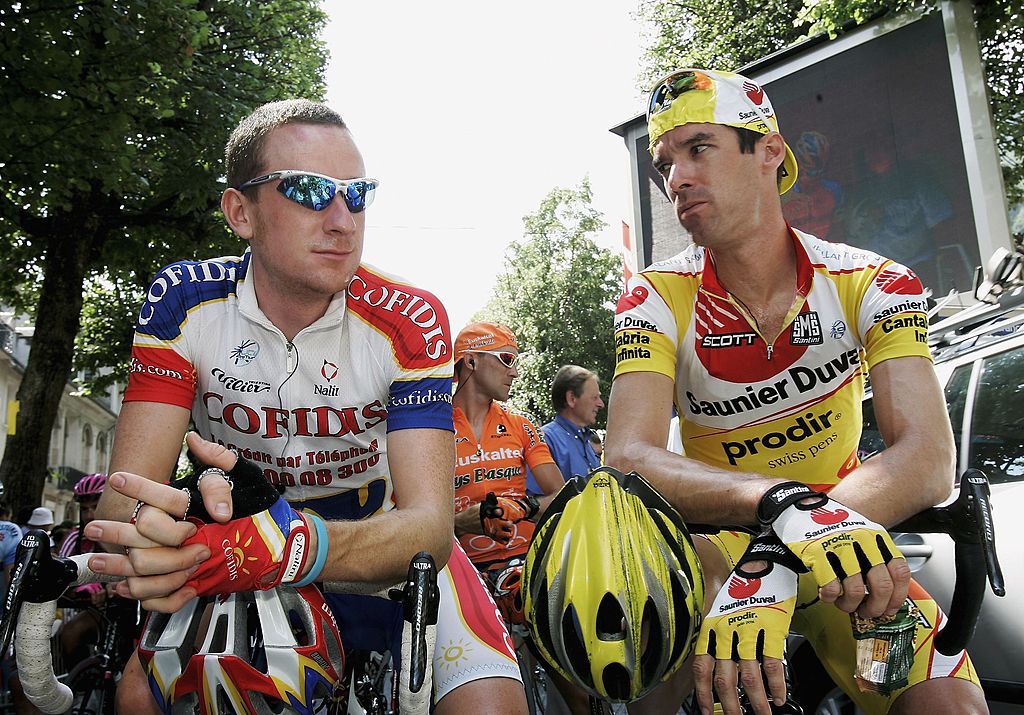
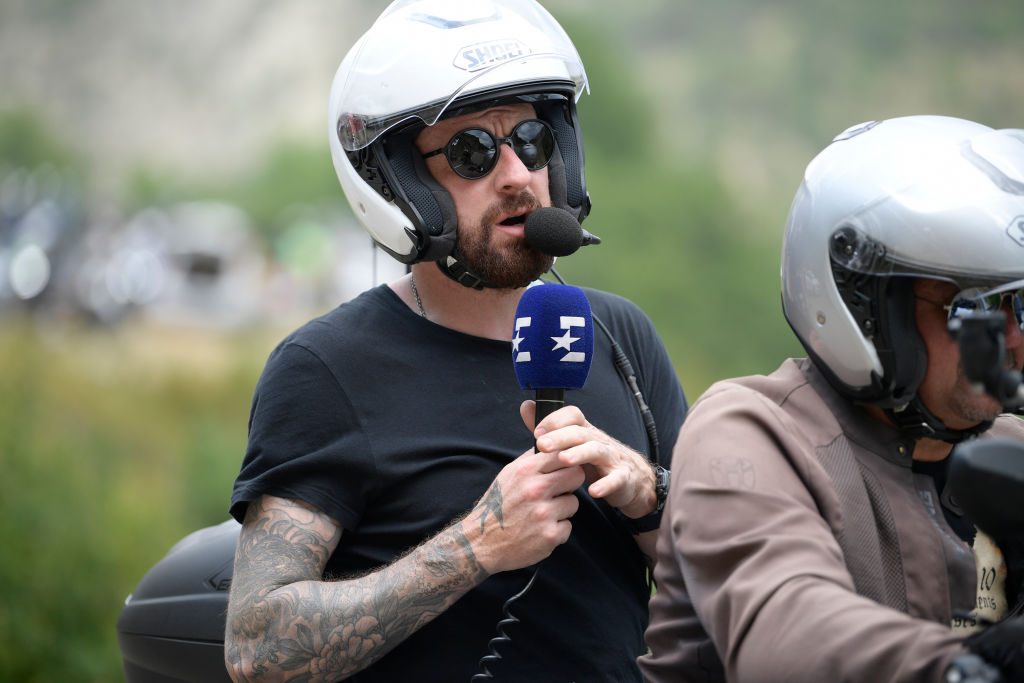
It's Bradley Wiggins 40th birthday today, and what better way to celebrate than to take a look back at his 15-year pro career?
Wiggins counted the 2012 Tour de France, four WorldTour stage races and Olympic and world time trial titles among his career triumphs, along with four Olympic golds on the track, with his Tour win the first by a British rider.
He kicked off his pro career with Linda McCartney before the team folded early in 2001 and moved abroad the next year for a prolonged spell with French teams.
Six years at FDJ, Crédit Agricole and Cofidis followed, with mixed outcomes for Wiggins. Two Olympic golds and three rainbow jerseys, all on the track, came in 2008 with Team High Road (Team Columbia from July 2008), before his Grand Tour breakthrough at Garmin-Slipstream the next year.
Wiggins' longest spell at one team, and his most fruitful, came at Team Sky between 2010 and 2015. There, he took the biggest road victories of his career, signing off with the Hour Record a few months after leaving.
During his final months with the team, Wiggins sat down with Cyclingnews to share his personal experiences from each squad.
From Jacky Durand going MIA the night before Het Volk; the secret meet with Dave Brailsford at the Tour in 2009; the Garmin party bus, and the story behind his non-participation at the Tour last year, it's all below.
Get The Leadout Newsletter
The latest race content, interviews, features, reviews and expert buying guides, direct to your inbox!
This article was originally published in February 2015.
La Française des Jeux (2002-2003)
In a nutshell: A baptism of fire
My first professional race was actually at Qatar in 2002 and we stayed at this hotel. We had some pretty big names, or big names at the time, that I'd grown up reading about all on the team. The first year with the squad though was a real shock to the system and it wasn't how I imagined it was going to be. It was totally disorganised but at the same time being in what seemed like a little family. FDJ is still like that today but back then we had guys like Jacky Durand, Frédéric Guesdon, Christohpe Mengin and Jean-Cyril Robin - all these guys who had been up there in huge races.
Then suddenly I was here with them at the Tour of Qatar. I'd come into the team in awe of these guys but once I was in I saw how laid back they all were. It was crazy at times but good, good fun.
Actually before I joined FDJ I was at Linda McCartney, but that ended really soon. I almost signed for an Italian team but I ended up going through the French system instead and the only reason for that was because Bradley McGee was there and he was allowed to ride the track. I wanted to race in Athens in 2004 and I thought that a French team would give me more options for that, whereas I might have got lost in Italy.
So there were these two paths and I could have ended up like so many others, with a history and you just don't know when you're 21-years-old. If I'd ended up living in Italy, I don't know what would have happened and I'd like to think I would have done the right thing but peer pressure, fear of losing my job and this being my childhood dream, you just don't know.
Cycling in that era was a lot different but French cycling seemed to have changed its tune back then. Madiot, after 1998, said we'd do it like this - in a correct way - and I have a lot of respect for him because they really did change after 1998 and a lot of others didn't. They've paid the price for that. Yet Madiot is still here with his team and he deserves a lot of credit for that. I was very fortunate to end up there.
But as I said, the team were crazy at times. I remember one episode, it was probably a week or so after Qatar and we were at Het Volk. The team put me in with Jacky Durand and I was rooming with him but the night before the race he turned around and said he just needed to nip out for a bit.
That was around 8 o'clock but he didn't come back until six the next morning. Then he got his kit on and went for breakfast. He rode the race and I think he was the first attack of the day. It was just bizarre because the perceptions I had of these people from reading about them in magazines were nothing like the reality.
Some of them were really professional though. Robin had been sixth in the Tour de France, had been on the podium in the Worlds in Verona and he was super professional but some of the others were just off-tap. Guys like Jimmy Casper and those guys were crazy but in a good way.
As a neo-pro you have these views of how the top guys were lying with their leg up against the wall the night before a big race but the reality was nothing like that.
I also did my first Grand Tour with this team. It was the Giro d'Italia in 2003 and it was just a complete baptism of fire. It was the hardest thing I've ever done. I struggled and survived through as much as I could until about two days to go when around 40 of us were eliminated on the stage that Pantani crashed on.
Crédit Agricole (2004-2005)
In a nutshell: Absolutely dreadful
So I had won the world pursuit title in 2003 and the Olympics were a year later. Chris Boardman was helping me a lot during that time and he said I should look at leaving FDJ so that I could get the programme I wanted. He went and had a word with Roger Legeay and the deal was done soon after.
That was by far and away the worst team I've ever been in. It was dreadful, absolutely dreadful and there was no camaraderie between the riders. I'd come from a team where there were some Australians who would want to have a laugh and a few beers but at Cofidis if you had a beer everyone went and told on you.
It was like being in school and everyone was competing against each other for Tour places. I was there with Julian Dean and Thor Hushovd but Thor was almost idolised by the team and everyone just looked to him. I found myself rooming with Julian most of the time but he hated it there as well.
Legeay had stepped back and he had seemed like the nicest guy and most understanding but he left the DS roles to two other guys and they didn't really like each other and it was like they were competing against one another.
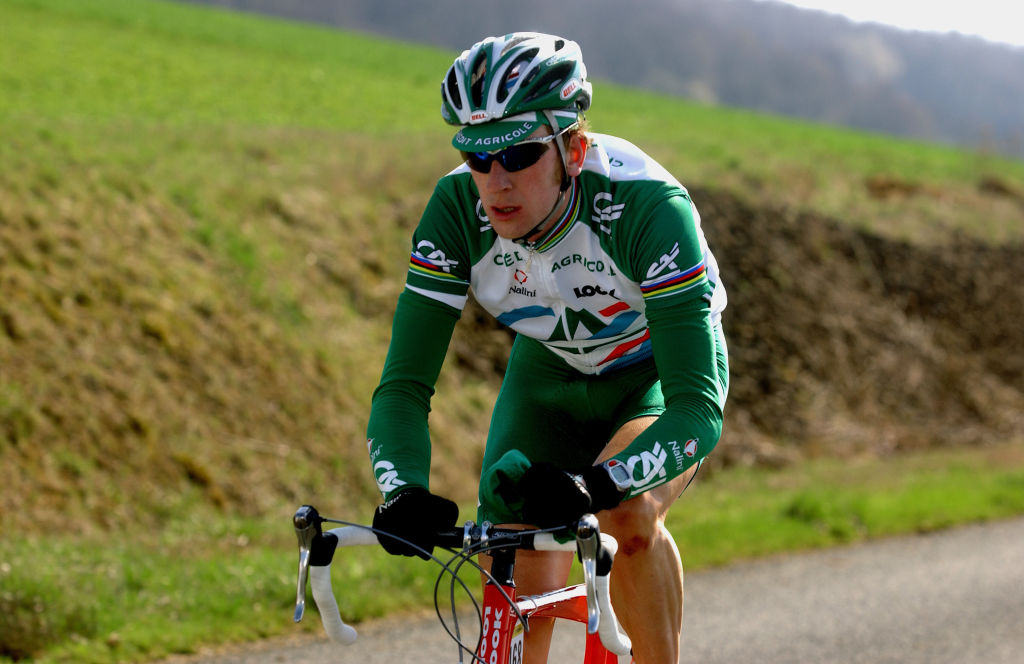
It meant that there was this horrible sort of undertone that was set from those two and went down from there. It wasn't a team at all, it was just a group of individuals.
I had some success, like my stage win in the Tour de L'Avenir, which was right at the end of the season and just before the Worlds in Madrid. I hadn't been picked for the Tour so I had been training pretty hard with British Cycling for the Worlds and through that form I ended up winning a stage in L'Avenir and then finishing seventh at the Worlds [in the individual time trial].
I was beaten on the day by [Alexandre] Kashechkin, who went [for doping], Vino (Alexander Vinokourov) who went, Ruben Plaza who is here but is half the rider he used to be, and they all went in Fuentes [Operación Puerto – Ed.]. Michael Rogers won that day, Fabian Cancellara was second and José Iván Gutiérrez was third. So on paper I was probably fourth but at the time seventh was a huge result for me.
Despite the atmosphere I always had the track to go away to and obviously I had the success there, but I stayed [with Crédit Agricole] for another year but it was just hell. At the end of 2005 they said they weren't going to keep me, which I understood because I wasn't the easiest to get on with and rebelled against it but I was glad to get out of there.
Cofidis (2006-2007)
In a nutshell: Disorganised but fun
After Credit Agricole I moved to Cofidis which was just as disorganised but it was fun and I spent a good couple of years there. I had signed for them at the Worlds the previous year and I enjoyed my time there and had guys like Chris Sutton, Rik Verbrugge, Nick Nuyens and Sylvain Chavanel.
It was a good laugh and 2007 was probably the best year, up until that point, that I'd had in any team. We were on the Tour that year but obviously we got sent home when Moreni tested positive but that was the best French team I was on in terms of success.
They had come off the back of the heavy years with Millar and Gaumont and they were trying to change. It was a happier time for me than the two years I'd spent at Crédit Agricole and I'd had some signs that I could race well too.
My wife had a baby in 2005 and I wasn't really training that well then but in 2006 I trained hard but didn't really get any results. I'd ridden the Tour for the first time but just made up the numbers and went back to the track and won two World titles at the start of 2007.
From there I carried that morale on and I had a good season winning the prologues in Dunkerque and the Dauphiné. I'd had a good Tour and that kick-started things for me and I ended up signing for T-Mobile, which later became Team High Road. I'd had the best season on the road and I'd had fun doing it. It was the perfect send-off.
Team Columbia/High Road (2008)
In a nutshell: A step up from Cofidis
At Cofidis we had Moreni testing positive and that created lots of doubts over the team's future. The same could be said of T-Mobile because Patrik Sinkewitz had been busted and T-Mobile pulled out but I still signed with them through Bob Stapleton.
He and Brian Holm approached me at the start of the Tour de France in London and told me that they were starting to build a team of riders that they could be sure were clean.
I signed for one-year deal but I didn't really race a lot with them. I did the Tour of California, Tour of Britain, Romandie and the Giro. It was a good team though and I enjoyed it there. It was a lot more advanced than my previous teams and they put a lot more emphasis on time trial bikes and nutrition, so they took everything seriously and it was a real step up from Cofidis.
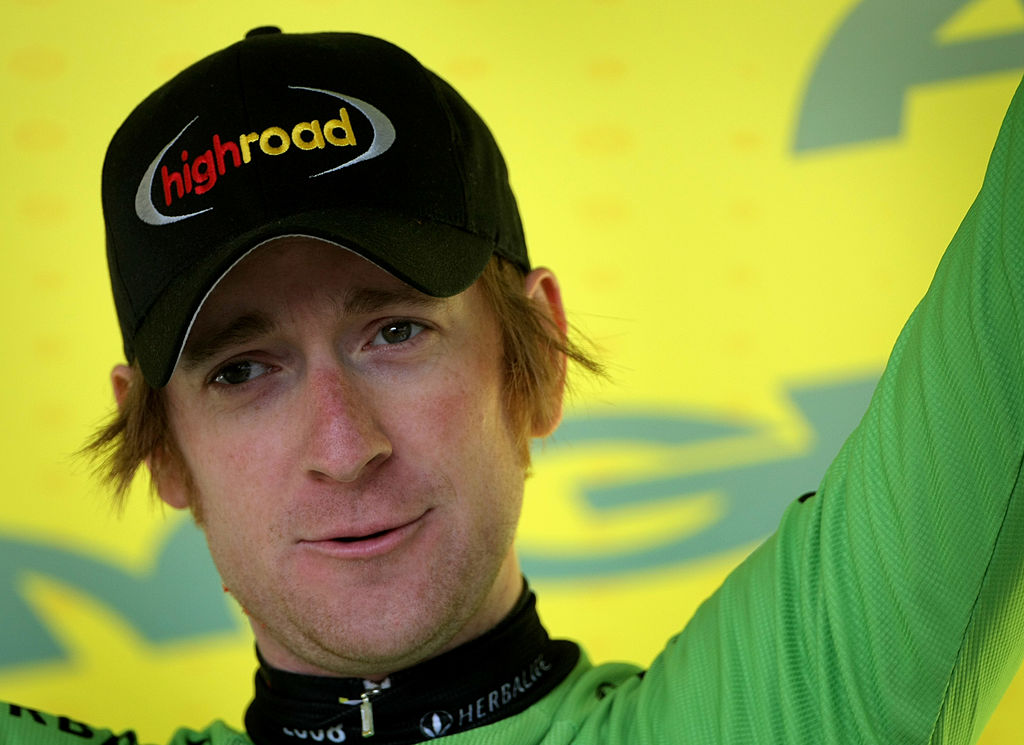
But I remember we didn't have showers on the team bus because we'd kept the old one and Ullrich didn't like to have showers on the bus in case he got ill after a stage. I still remember the bus actually. At the back there were seats and on the left a toilet on the right this small little room with a door and a two-seater bench.
Someone would always sit there with their rucksack and you could close the door if you wanted. I used to go there and just sleep but it was an odd space. Looking back it was obviously the room where the T-Mobile guys would hang their blood bags or EPO up.
In previous teams I used to travel to races with my own nutrition products because you'd be given a bottle of water or a bottle of syrup. I was sponsored by Science in Sport back then so I used to take a suitcase full of bottles, powder and protein, which seems silly now.
High Road was like being on the British team in terms of the support but it was all for the Olympics that year.
Garmin-Slipstream (2009)
In a nutshell: Fun on a party barge
During the Giro of 2008 I started talking to David Millar and I almost went there in 2007, but they couldn't give me security I needed with the Olympics coming up in 2008. When is saw them take off in 2008 I thought about how much I wanted to join them and how I wished I'd signed earlier.
A lot of my friends were there – Sutton and Dean again, Backstedt, Vandevelde – and it just looked like a lot of fun. I ended up signing there for two years. I could have signed to stay with High Road but that season in 2008 had been Cav's breakthrough Tour and it was clear what was going to happen over the next few years.
So I went to Garmin and had more of a free reign there. I did the Giro and could do the races I liked. Then I ended up stumbling into being fourth at the Tour. It was a bit of a defining moment, leaving High Road I mean, because I would have probably stayed ay High Road and then ended up with Cav at QuickStep later.
And Garmin was just crazy. It was probably the best team I've been involved with in terms of how well we did but how relaxed it was at the same time. They used to call the team bus the party barge because it was limited to 60mph and it meant that whenever we went anywhere it took us an hour longer than anyone else and the fridge was always full of beer.
In fact it was the old ONCE bus if you can believe that. It was their second bus and it had ONCE logos on the headrests and everything.
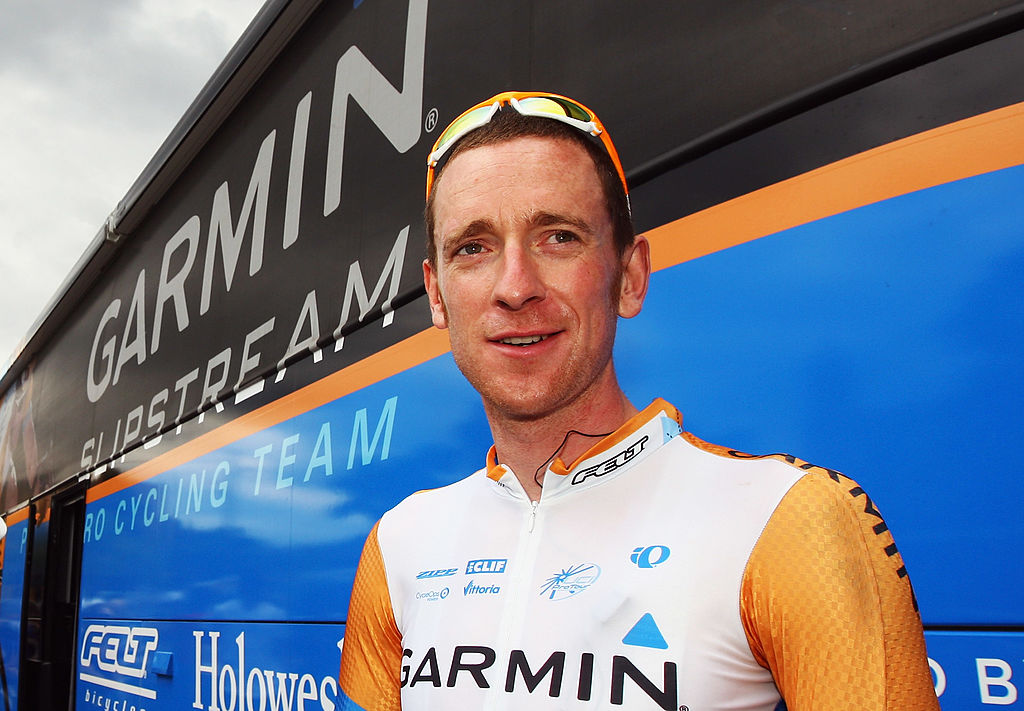
But at the Tour I had finished the first mountain stage to Andorra in the front group and that's when Dave Brailsford flew out to meet me. I met him in a supermarket in Limoges and Garmin weren't to know. We had stayed in this Campanile and I just took a team car and just drove it there myself. they didn't notice and to be honest you could just do that sort of thing if you wanted to.
I had to listen to Dave but there was this whole mess because I had two-year contract. Then I went onto finish fourth and I just had to do it.
If I was ever going to do it [try and win the Tour], it was going to be with Dave and the whole team. I said at the time it was like going from Wigan to Manchester United and [Garmin] took great offence with that but I live in Wigan and support them.
It was my home and I felt like Garmin were that too so it wasn't meant to be disrespectful to them but 2009 was still the best year I've ever had in any cycling team in terms of how much fun we had and how much I just loved going to bike races.
Team Sky (2010-2015)
In a nutshell: Business-like
How can I sum up Sky? I've been here for five years and I've had all my major success here but it's been business-like. I couldn't have achieved all I have without being in this team but I almost feel like I'm ready to leave because the intensity in this squad is at such a high level that it's hard to maintain. As soon as one season ends you've got to be on it again straight away so the training camps are in December and you've got to train just to be ready for the camps.
So five years is a long time, and I'm almost ready for a change. To sum it up as a team it's been the hardest and best time of my life. The expectations, the demands and pressures hasn't made it not-fun but it's been business like. It's a complete contrast from where I started with the FDJ back in 2002.
It really has been like being a Manchester United for the last few years and any weakness and slip up and you're shoved to one side, just like you would be if you were at United because there's always new riders to come up and take a spot. So with the Tour, the minute you take your eye off it someone else is willing to have a go.

I actually really wanted to go back to the Tour last year in that helping capacity because I was coming back to form after California but it just wasn't to be. I knew then that I'd never do another Tour and I don't regret that if I'm really honest. In a way I'm pleased that I won the one that I was supposed to win in 2012.
That moment, winning the Tour was a bit of a blur though. I have more memory of winning the time trial the day before than the day in Paris. That was the best day because I knew I'd won the race and the moment of walking to the press conference, that's when it started to sink in.
The next day Cav wanted to win in Paris and I put my hand up for being the second last man in his leadout. I was so focused all day, had my caffeine gel and there was no real parade. The whole podium was just strange because you don't know what to say or do and when I watch it back now and I see how I behaved and it's like it's not me because the whole world is watching.
That was probably the moment when I wasn't going to ride the Tour again. I didn't get to race with him then, so when the season went on I did Roubaix and California. They sent me to Suisse and not the Dauphine so by the time we got to that point Chris probably wanted the team around him that he had confidence in. There was still this unknown and Chris and Dave both foresaw this scenario that if we got to the cobbles and Chris had trouble would I wait or not. There were lots of what-ifs.
I could have said it until I was blue in the face, that I would helped the team but I understood why they made the decision they did. Looking back, individuals aside, I would have wanted the same. It was about having faith in the people around you. He had won the Tour the year before and at the end of the day they picked the right team.
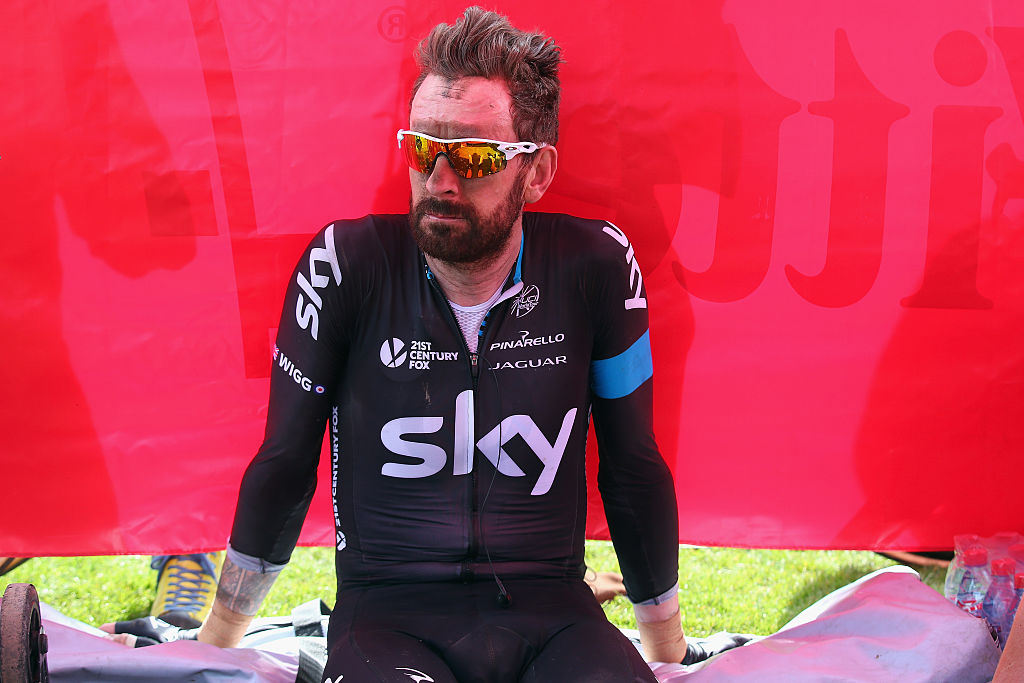
It was disappointing and I felt like I could have helped but that's what Team Sky are about. It's not about loyalties it's about being ruthless and putting bodies out there, regardless of what you've done in the past. And it's going even more that way now with the influx of riders they've brought in for the Tour programme.
But I accept that and I've profited from that so I'm not going to really complain about it. It's just the way it is.
With the BBC appearance, I could see what was happening. I knew that when I came back from California I wasn't doing the Tour. I was told I wasn't doing the Tour. I went back on the track and started training for the Commonwealth Games.
The team wanted me to go to Suisse but I asked them to make it public that I wasn't doing the Tour because I was worried that the team were going to let me fall on my arse but I thought that someone had to tell the world I wasn't doing the race. Like I said, they went to the Tour with best team and it's the team where I achieved all my best success. I'll always remember that.
Wiggins retired from the pro peloton in 2016 after spending a year and a half with his own Wiggins team. He took the Hour Record in June with a distance of 54.526 km, took several medals at the European and World Track Championships, and then ended his career with an fifth Olympic gold, in the team pursuit at the 2016 Olympics.
Since retirement, Wiggins has attempted a move into rowing and lauched a podcast – The Bradley Wiggins Show – in association with Eurosport. Last season he worked as an expert pundit for the channel, in the studio at the Giro d'Italia and on a race moto at the Tour de France.
Daniel Benson was the Editor in Chief at Cyclingnews.com between 2008 and 2022. Based in the UK, he joined the Cyclingnews team in 2008 as the site's first UK-based Managing Editor. In that time, he reported on over a dozen editions of the Tour de France, several World Championships, the Tour Down Under, Spring Classics, and the London 2012 Olympic Games. With the help of the excellent editorial team, he ran the coverage on Cyclingnews and has interviewed leading figures in the sport including UCI Presidents and Tour de France winners.
